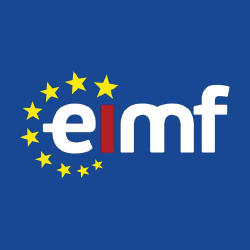
Tax Fraud & Tax Evasion
- Λογιστικά/ Έλεγχος/ Φορολογικά
ΠΕΡΙΓΡΑΦΗ
Financial liberalisation in the late 1970s and 80s greatly increased the opportunities for capital flight and tax evasion. It led to a rapid growth in the volume of personal assets held offshore and largely untaxed and stimulated a massive increase in the volume of cross-border trade routed via tax havens for tax minimisation purposes. Despite the plethora of international initiatives ostensibly targeted against the use of tax havens, almost all expert opinion agrees that the scale of activities conducted through tax havens and offshore financial centres continues to grow.
The seminar looks at the insights of tax fraud, evasion, and avoidance. The harmful tax practices, the flight capital and transfer pricing have been recognized as having an even greater damaging impact on the global financial system and as a major impediment for countries to sustain their tax base, and in particular for developing countries to sustain their own development.
Tax evasion is an illegal act that encompasses any activity designed to deceive or cheat tax authorities. In some jurisdictions it is also an offense for corporates to fail to prevent the facilitation of tax evasion by its representatives, customers, and connected parties.
Tax evasion incurs costs for governments and tax authorities as they aim to recover lost funds and bring about legal proceedings against offenders. However, the lost revenue caused by tax evasion and other aggressive forms of tax avoidance also impacts the ability of governments to provide essential public services—such as health or education—to their citizens. International governments and organizations have demonstrated a renewed focus on the prevention of tax evasion through increasing numbers of enforcement actions and the development of key legislation in some jurisdictions.
The purpose of this seminar is to discuss the regulations governing the tax matters and discuss in depth the tax evasion and fraud practices demonstrating ways of how to eliminate such acts.
ΣΚΟΠΟΣ ΣΕΜΙΝΑΡΙΟΥ
During this programme, professionals will obtain thorough training in tax matters. By the end of this programme, participants will be able to:
In terms of knowledge:
- Outline and analyse the regulatory requirements emanating under the EU laws.
- Define the tax avoidance, tax evasion and tax planning.
- Differentiate between tax fraud, tax evasion, tax avoidance and tax planning.
- Describe all tax evasion practises.
- Comprehend the consequences of tax evasion and tax fraud.
- Determine when a transaction involves tax evasion.
In terms of skills:
- Apply the requirements of the relevant tax regulations.
- Establish the need to deploy tools to support the application of tax regulations.
- Classify and identify the tax fraud cases.
- Classify the factors enabling the tax evasion and fraud.
- Calculate the impact of tax evasion and fraud.
In terms of attitudes:
- Manage stakeholders’ expectations.
- Assess the readiness of the organization to apply the requirements of the tax regulations.
- Adopt a formal policy to be followed when addressing tax matters.
- Justify the importance of applying the tax regulation requirements.
- Justify the need of company to apply the tax regulation requirements.
ΣΕ ΠΟΙΟΥΣ ΑΠΕΥΘΥΝΕΤΑΙ
The programme is ideal for:
- Financial or management accountants
- Internal and external auditors
- Tax officers
- Compliance officers
ΠΕΡΙΣΣΟΤΕΡΕΣ ΠΛΗΡΟΦΟΡΙΕΣ
Training Outline
Introductory Remarks
- Tax evasion and tax avoidance: Theoretical underpinnings
General Concept of Tax Avoidance and Evasion
- Definition of Tax Avoidance
- International corporate tax avoidance
- Perspectives on tax avoidance
- Tax avoidance practices used by multinationals.
Tax Evasion
- Definition of Tax Evasion
- Typical methods of tax evasion
- Causes of Tax Avoidance and Evasion
Tackling Tax Evasion, Tax Havens and Offshore Finance
- The Long and Winding Road: Tackling Capital Flight and Tax Evasion
- Tackling Tax Havens and ‘Offshore’ Finance
- A few random thoughts on hedge funds, private equity
Training Style
Methods
A face-to-face method of delivery is selected as it is considered one that significantly enhances the direct interaction between the trainer and the participants. It also offers the comfort of a more controlled environment, which allows better communication and networking. The trainer will encourage the exchange of ideas through open-ended questions in order to ensure that a positive and stimulating learning environment is sustained.
Techniques
- Demonstration lecture
- Presentation
- Discussion and case studies
- Group activities and assignment
- Questions – answer individually multiple-choice questions and then discussion.
CPD Recognition
This programme may be approved for up to 5 CPD units in Accounting & Auditing. Eligibility criteria and CPD Units are verified directly by your association, regulator or other bodies which you hold membership.
Πληροφορίες Εκπαιδευτή
Αναλυτικό Κόστος Σεμιναρίου
- € 180.00
- € 0.00
- € 34.20
- € 180.00
- € 214.20
 Ελληνικά
Ελληνικά  English
English



 Αγγλικά
Αγγλικά
 5 ώρες
(
2 μέρες
)
5 ώρες
(
2 μέρες
)




















